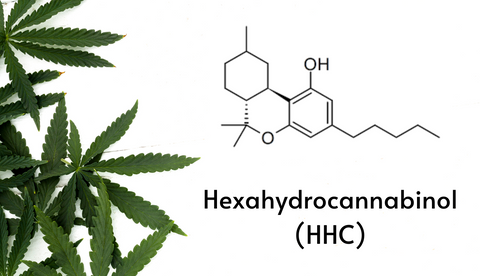THE ULTIMATE GUIDE TO HHC
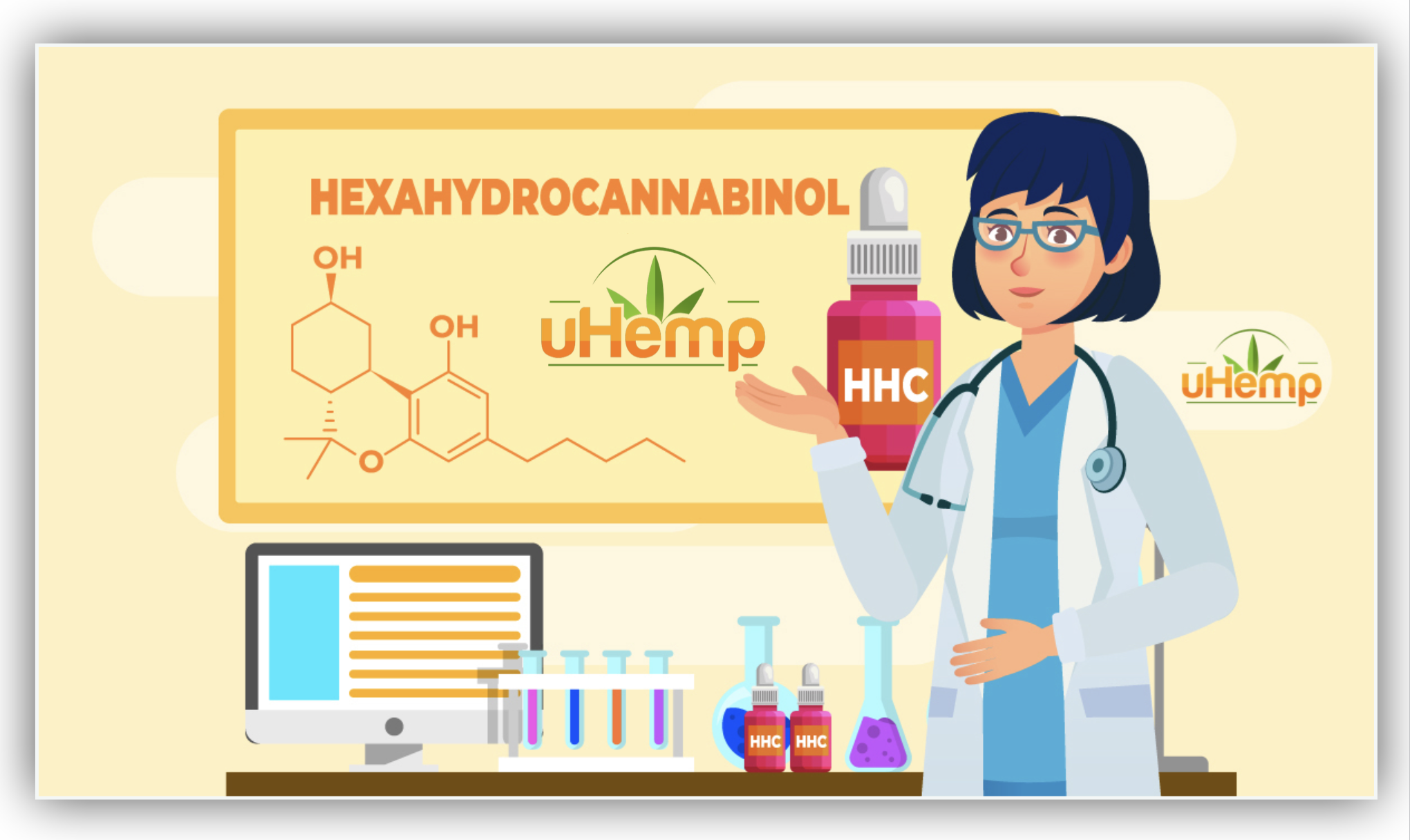
What is HHC?
HHC, or Hexahydrocannabinol as its chemically known is a Hemp-derived Cannabinoid that has been gaining a lot of attention recently. Initially when HHC was first created in 1944 by an American chemist called Roger Adams, he added hydrogen molecules to Delta-9 THC. This process, known as hydrogenation, converts THC to hexahydrocannabinol (HHC).
Back in 1947 Adams created HHC from conventional cannabis-derived THC, today in modern times the cannabinoid is almost 100% derived through a process that begins with Hemp, and more specifically CBD. Since HHC is found naturally in small amounts in the Hemp plant, humans have likely been unknowingly consuming small amounts of this cannabinoid for centuries.
In relation to potency, HHC is thought to be about 65%-80% as strong as traditional THC (Delta-9-THC).
The onset of HHC effects is 5-10 minutes via smoking or vaping HHC and up to 60 minutes via oral consumption. Effects from smoking or vaping HHC products can last up to four hours and oral consumption up to six hours.
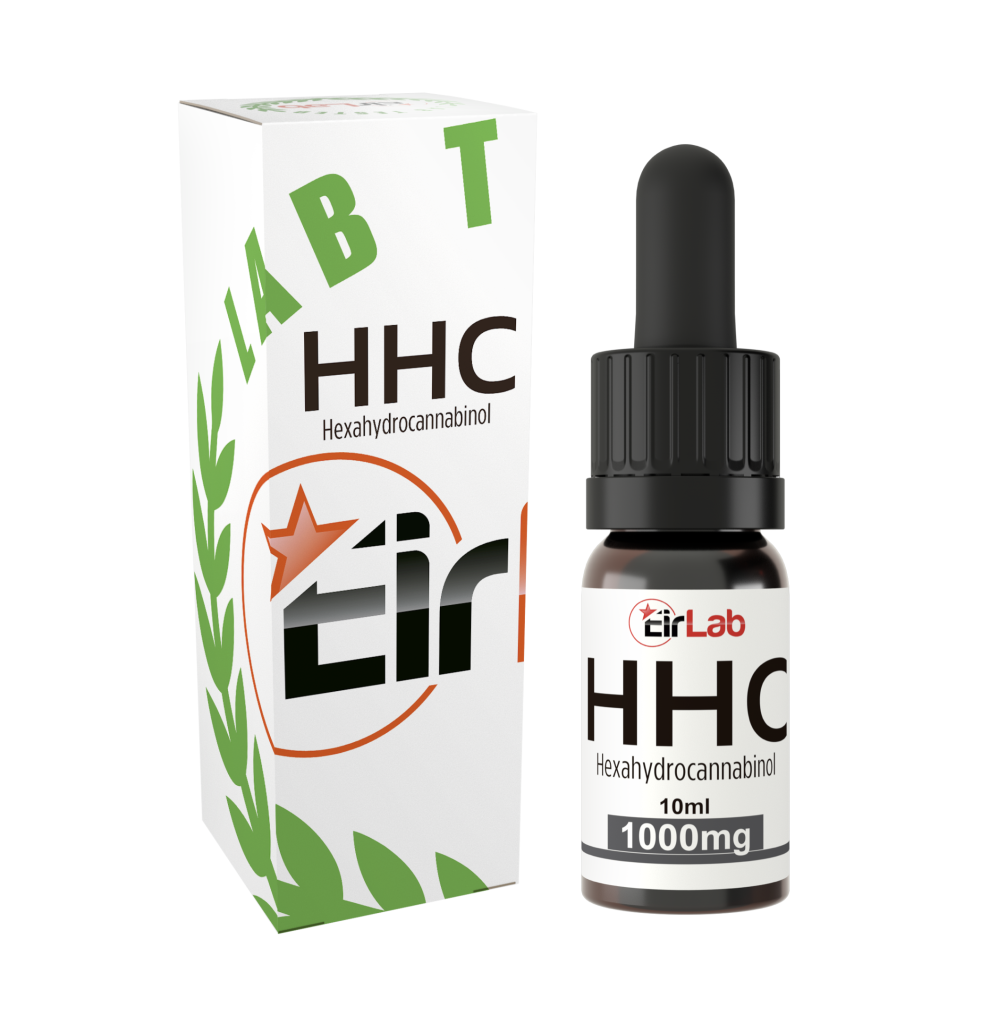
HHC is not an actual THC compound or THC derivative. Using current methods it takes a lot of hemp plants to produce a significant amount of HHC. Obtaining meaningful amounts of Cannabinoids from hemp requires isomerisation or hydrogenation of Hemp-derived CBD. However, the process is a bit different because it involves a hydrogenation process instead of isomerisation. Since HHC cannot be extracted naturally to produce significant quantities, it is converted from CBD instead.
HHC found in Ireland and on the EU market today is produced from other cannabinoids contained within legal hemp material. So, HHC isn’t THC. Even still, the confusion surrounding HHC has caused some concern within the industry. Let’s explain in more detail.
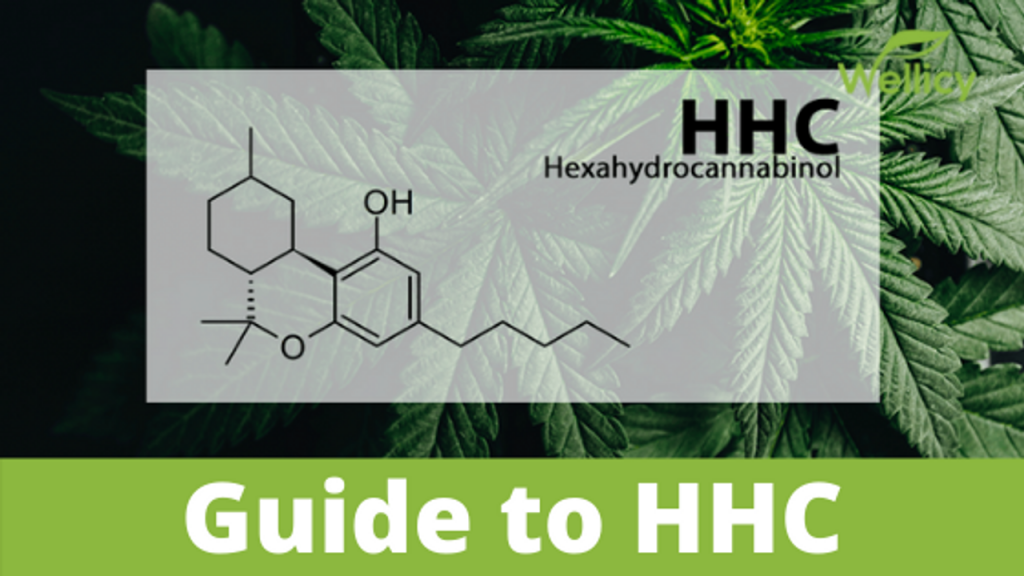
Although HHC takes a form similar to THC, it also includes a hydrogen atom, so it’s not technically classified as a THC molecule. HHC differs much from THC molecules because it lacks double bonds. During the hydrogenation process used to create HHC, the double bonds are broken down and replaced with hydrogen molecules. HHC and THC share an almost identical molecular structure. The main key differences are HHC has two additional hydrogenated carbons and THC has a missing ester atom and carbon bond.
After exposure to oxygen HHC may begin to slowly take on a dark orange hue. The storage of HHC should be at room temperature or slightly lower, in an airtight container and make sure its protected from UV Light. Compared to THC, HHC doesn’t lose its potency anywhere near as quickly when exposed to air. While certain storage conditions are advised, HHC is also incredibly resistant to heat and UV light. HHC is nearly apocalypse-proof, thanks to the stable hydrogen bonds.
Physical Characteristics;
Formula: C21H32O2
Molecular Weight: 316.5 g/mol
Appearance: Amber oil
Potency: 99%+
Odor: Slightly Floral
Format: Isolate
CAS: 6692-85-9
Understanding these hydrogen bonds can be somewhat complex, the most important thing to know is that HHC may have a slightly different affinity for both the CB1 and CB2 receptors than other various popular Cannabinoids.
It’s also worth mentioning that although HHC is a cannabinoid it differs vastly from K2, spice, or other versions of synthetic cannabinoids you may find on the market. These synthetic Cannabis products are potentially dangerous, and they are likely not made from real Hemp plant material.
In relation to potency, HHC is thought to be about 65%-80% as strong as traditional THC (Delta-9-THC). We would like to clarify that by potency we mean the cannabinoid’s affinity for the CB1 receptors, which is the cannabinoid receptor responsible for inducing effects. The actual potency or intensity of effects you experience from a particular product has a lot to do with your personal tolerance and of course body weight.
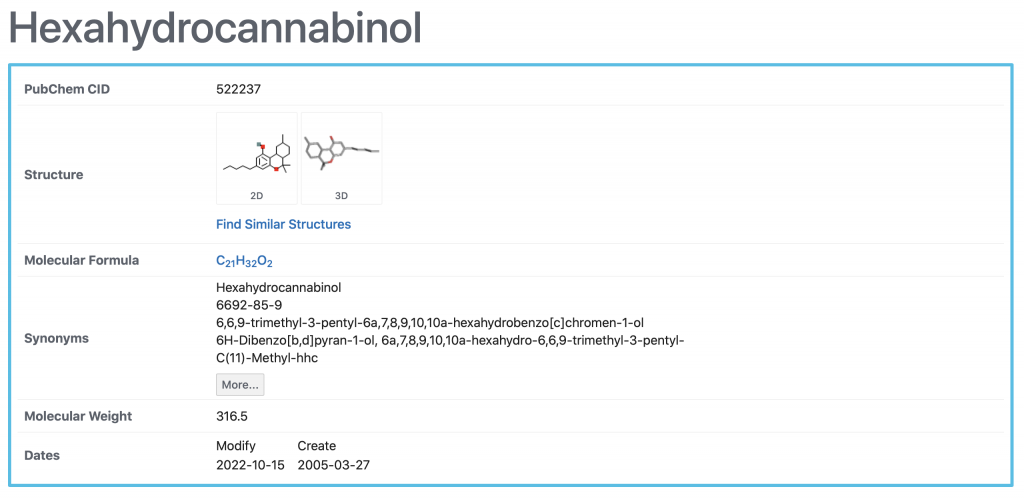
HHC is believed to have its own range of therapeutic effects that are normally described as being usually relaxing and sedating. HHC is slightly milder than traditional THC, its thought to be far less likely to induce some of the negative side-effects that are sometimes associated with THC, like anxiety and paranoia.
The effects of HHC are similar to THC and delta-8, its to do with the number of carbons on its alkyl side chain. All 3 cannabinoids have five carbon side chains, which basically means they bind to your cannabinoid receptors efficiently. There are two known subtypes of cannabinoid receptors, called CB1 and CB2. The CB1 receptor is expressed mainly in the brain, but also in the lungs, liver and also kidneys. The CB2 receptor is expressed mainly in the immune system.
Mild-to-moderate doses of HHC will likely cause noticeable euphoria, visual distortions, cognitive impairment, and physical sensations. Whether these effects are overwhelming is currently unclear.
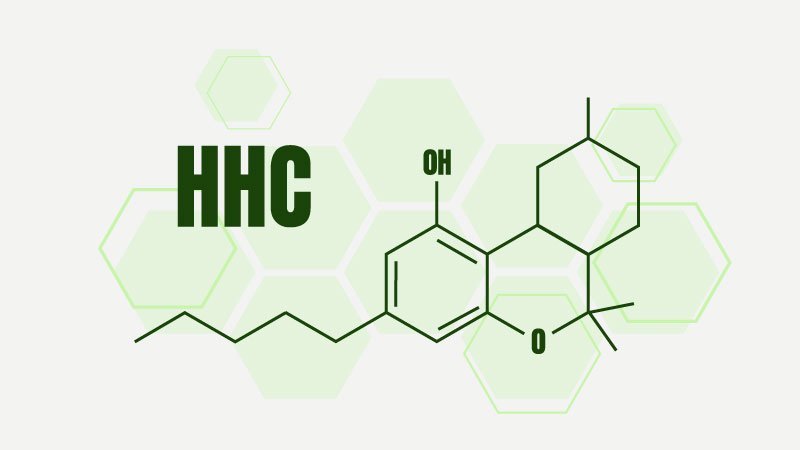
However, since HHC is approximately between 65% – 80% the strength of THC, for an unexperienced user we believe high doses could cause an intense and sometimes uncomfortable euphoric sensation simulation to THC. The psychoactive effects of cannabis compounds are highly subjective and vary among people and the method of use.
Drug Testing: A big part of the appeal of HHC is that it may not trigger a positive drug test the same way that THC may do. Based mostly on anecdotal reports the premise is that HHC will not produce the same THC metabolites in the body as THC because to put it simply – HHC is not a THC molecule. Standard drug tests look for these THC metabolites, not actual THC, which may mean that HHC is a workaround for people subject to drug testing. This is highly debated and not necessarily evidence based, so its highly suggested to do your own research before taking the risk.
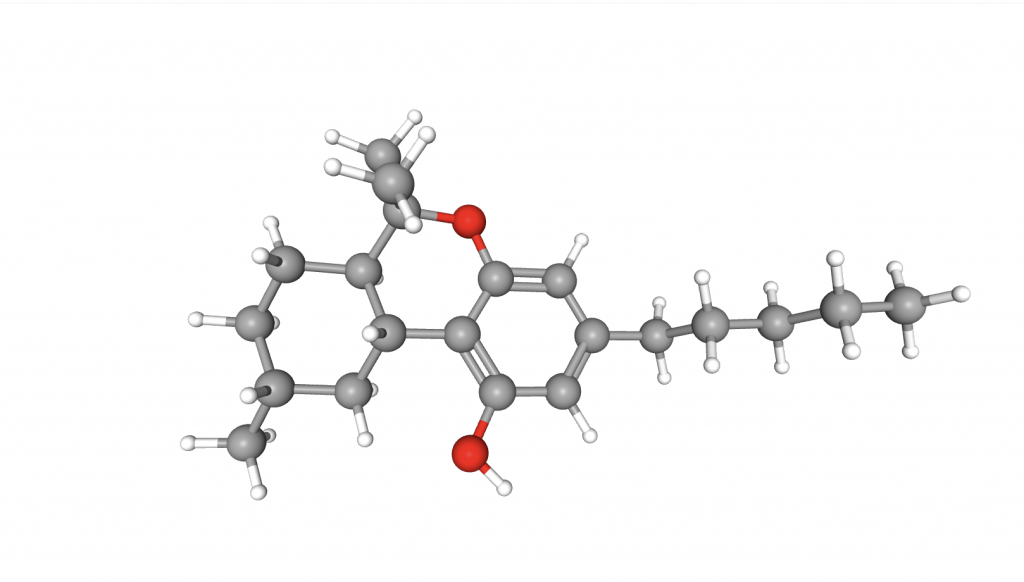
Dosage: It’s hard to really compare the average dosage of THC and HHC, this is because dosage size normally depends on many unique factors including tolerance, body weight, and of course desired effects. As a general rule of thumb, the dosage thresholds for THC and HHC are similar, and an average dose to regular users for either is around 25 milligrams. For milder effects, you may use doses as low as 1 – 5 milligrams, and experienced THC consumers may prefer doses of up to 50 milligrams or higher. There will some slight variation because HHC is slightly less potent, but you’ll need to try it for yourself to figure out the best dosing threshold because everyone’s experience varies as you may know. As always, common knowledge will dictate that starting with small doses and working your way up in order to safely explore HHC is the clever option.
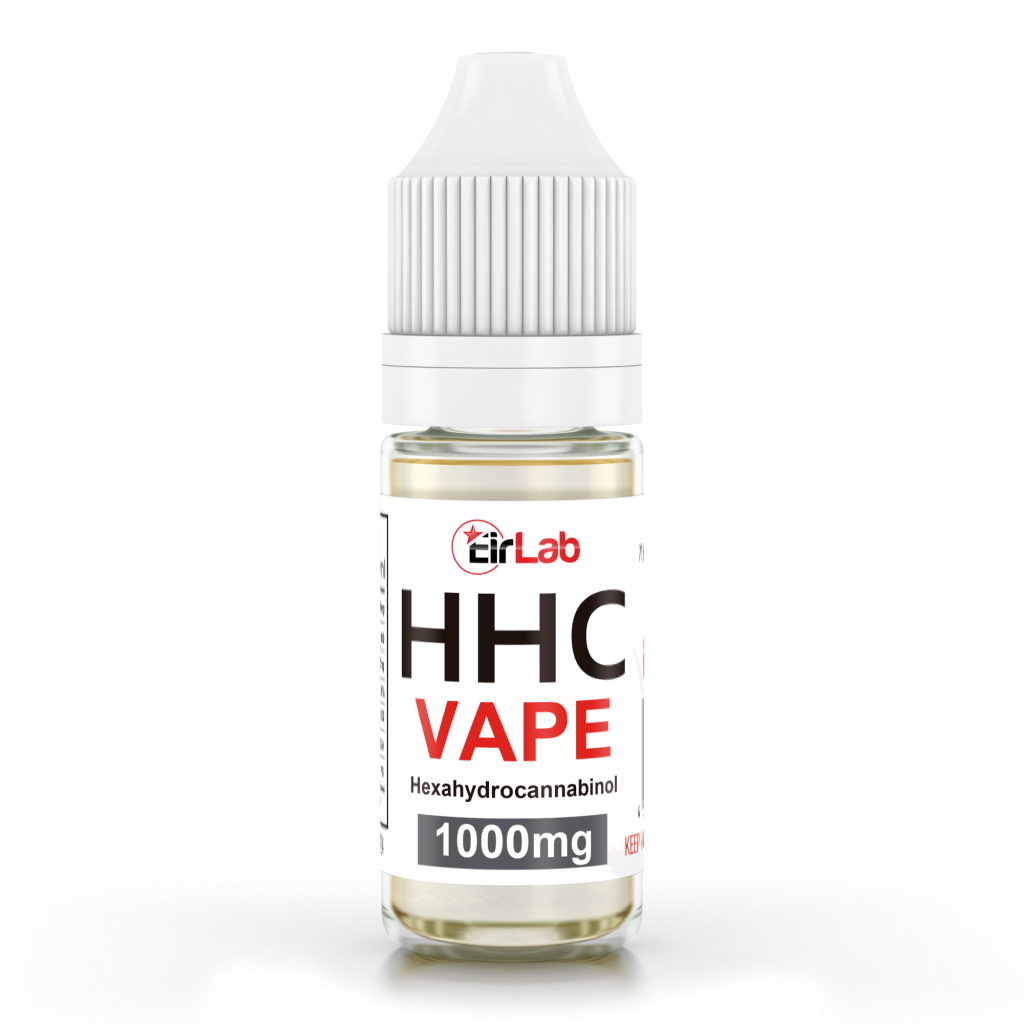
How HHC makes you feel is very subjective. Some users report mild euphoria, physical relaxation, and mental focus. In contrast, other users report sedation and a little sleepiness. Very high doses above your tolerance level can induce negative but non life threatening side effects such as anxiety, stress, memory loss, and sickness in rare cases. These side effects are why we always recommend you start with the lowest dose, especially if you’re a beginner user.
Some people claim HHC has more Sativa-like effects. Cannabis knowledge states that common Sativas produce and promote clear-mindedness, positive euphoric sensations, and energy. Sativa strains are known to produce a “mind high,” or a mood-boosting, energising effect that helps you feel more alert. Sativa often has higher doses of THC and lower doses of CBD. Indica strains offer relaxing effects that may also help to reduce pain, increase your appetite and aid sleep.
There is one constant among HHC users that we gathered is it gives them a more subtle and less intrusive high without too much anxiety or paranoia.

This change in the onset of effects and duration of your high largely depends on how your body absorbs HHC. HHC orally consumed will travel through your digestive system and absorb through your intestinal walls, eventually entering your bloodstream and metabolising via your liver. HHC is then redistributed back into your bloodstream after the metabolisation process. Food intake and how much sustenance exists in your stomach affect HHC absorption. The more food in your belly, the slower the absorption rate will be.
As with other cannabinoids, the recent surge of interest in HHC doesn’t match the comprehensive studies into its safety and effects; much of the available information on HHC is speculative at this stage. So far our preliminary research indicates HHC has a safety profile comparable to THC, and reported side effects are similar to those resulting from high doses of THC.
The potential side effects of a high dosage of HHC include:
Anxiousness
Dizziness
Dry mouth
Increased appetite
Insomnia
Paranoia
Rapid heart rate
Red eyes
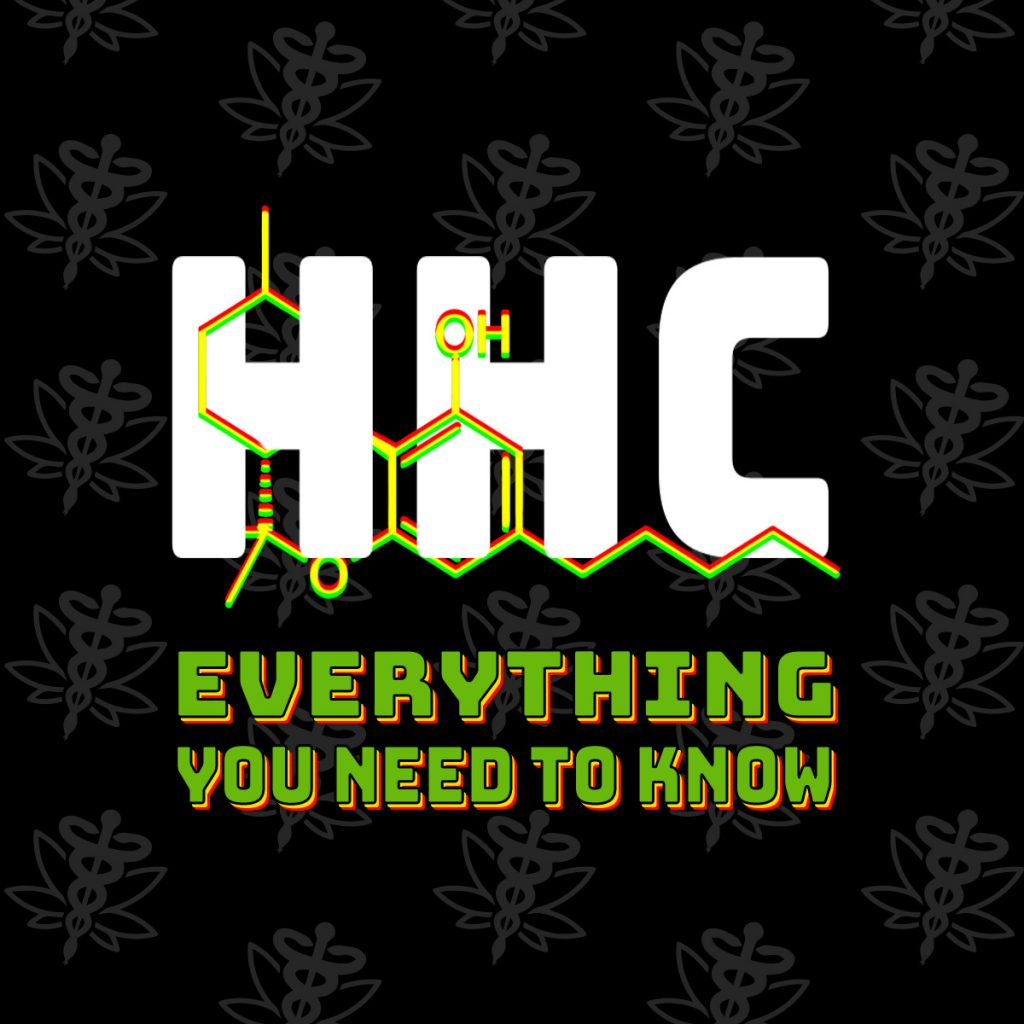
Can you overdose on HHC? As far as we are aware there has never been a case of HHC or any other cannabis compounds causing an overdose. However, some of HHC’s side effects can feel like you’re overdosing. There have never been any overdose-related cases from taking HHC or other organic cannabis compounds. However, if you take too much HHC, it can make you anxious and paranoid, just like THC. This anxiety and paranoia can make you fear an overdose or feel like you’re overdosing. It’s important to remember that these feelings are safe and not indicative of an overdose.
Don’t consume more HHC if you’re experiencing anxiety, stress, or paranoia. Find a chair or bed in a dark, comfortable room and rest until the effects wear off. Take some CBD if you have any. CBD is a non-competitive negative allosteric modulator of CB1 receptors. This modulatory behaviour means it partially or fully inhibits HHC and other THC isomers from binding to CB1, thus reducing a euphoric high. We recommend taking CBD before HHC dosing for a more relaxing experience.
In relation to safety, Currently, there’s no evidence that proves that HHC is unsafe. In some cases, HHC may be considered a safer option by default simply because it’s not as potent, so the potential of overdoing it is much lower that THC. For now, research regarding the safety of HHC, especially with long-term use, is very limited. The same is true for most hemp-derived cannabinoids, which are still largely unregulated. Of course, many experts believe that the risk and benefit profile of HHC is similar to that of THC, meaning it may be safe when used responsibly and in moderation.
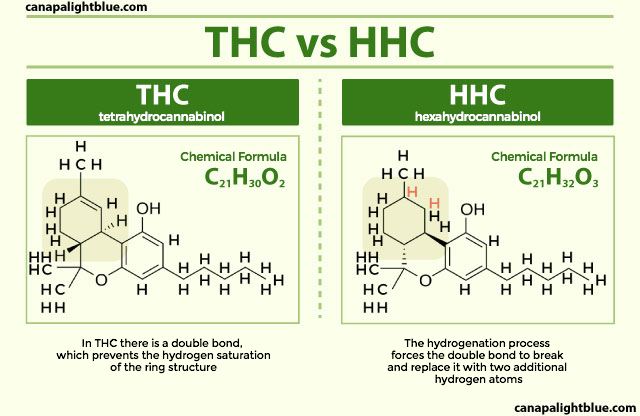
Key takeaways:
HHC is an intoxicating cannabinoid. It’s weaker than delta-8 and delta-9 and is suitable for beginner users.
HHC’s effects can include mild euphoria, relaxation, and physical sensations in small doses (1-10 mg). Larger doses (10+ mg) can cause stronger effects and a higher risk of negative short-term side effects such as anxiety, paranoia, and physical discomfort. Some users might also experience memory loss, nausea, and sickness.
Very few research papers exist on HHC’s benefits. However, two HHC analogs (LYR-7 and LYR-8) promote anti-proliferation and helped reduce tumor growth. HHC likely has the same benefits as delta-9 and delta-8 due to its molecular similarity and ability to bind to CB1 receptors.
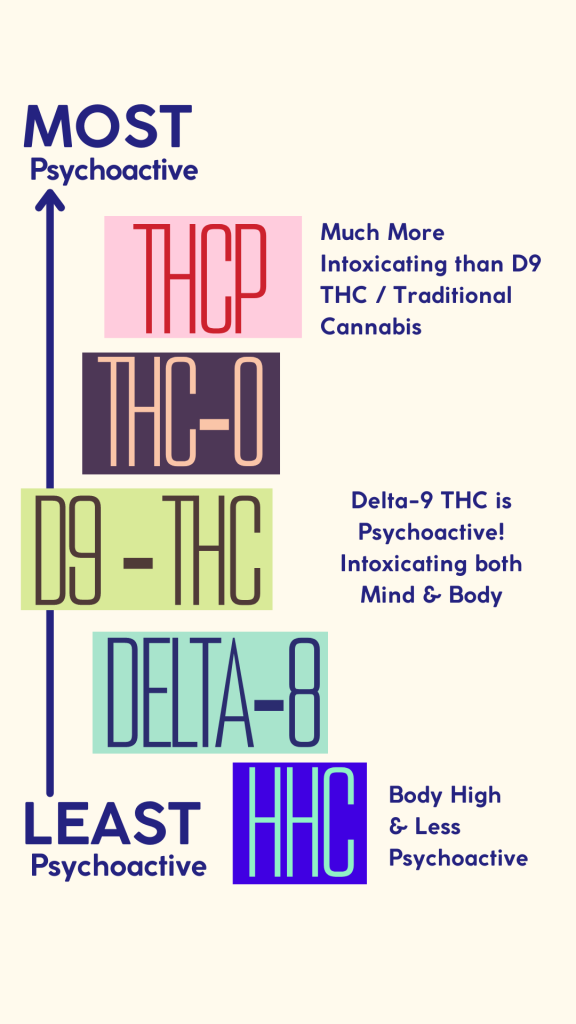
HHC likely triggers a positive or false-positive drug test result due to product contamination or HHC metabolite similarity with delta-9 metabolites. Unfortunately at this time there’s not a lot of solid research investigating the length of time the HHC molecule stays in your system, but if we look at delta-9 THC as a reference, it can be detected in the blood and urine of frequent users for up to several months. We should assume that HHC, like other cannabinoids, is stored in the fat tissues and can remain in your system for an average of 4-6 weeks. For light users, it’s recommended you abstain from HHC for at least 3 weeks or more before drug testing.
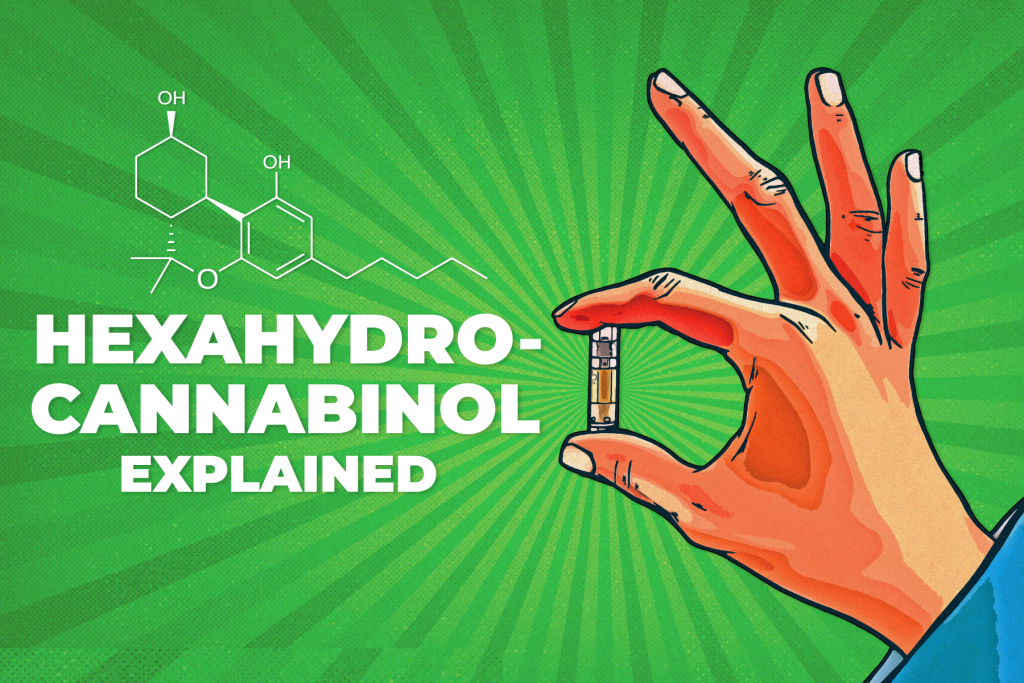
Notes
Do not use HHC if you are under 18 year of age.
Do not use HHC to diagnose, treat, cure, or prevent any disease.
Consult your doctor if you have a medical condition before using HHC.
Advice should be sought from your physician if you are using prescription medications.
Do not use HHC if you are pregnant or nursing.
Seek your doctor’s advice before using HHC.
The information on this page is for educational purposes only and is not to be taken as legal or medical advice.
View original HHC patent, (PDF)
View HHC TECHNICAL REPORT (PDF 108 pages)

